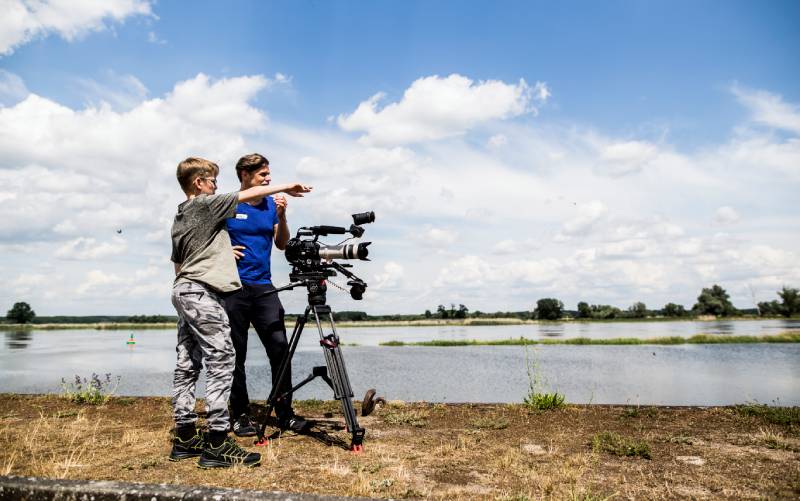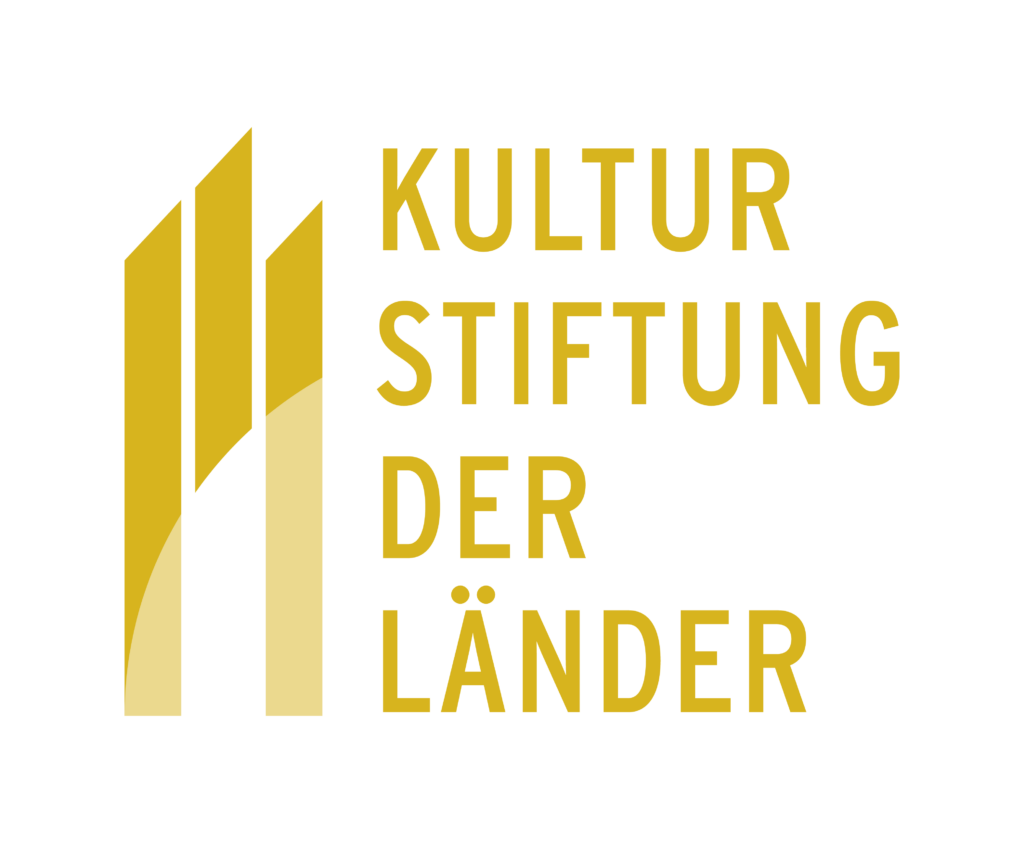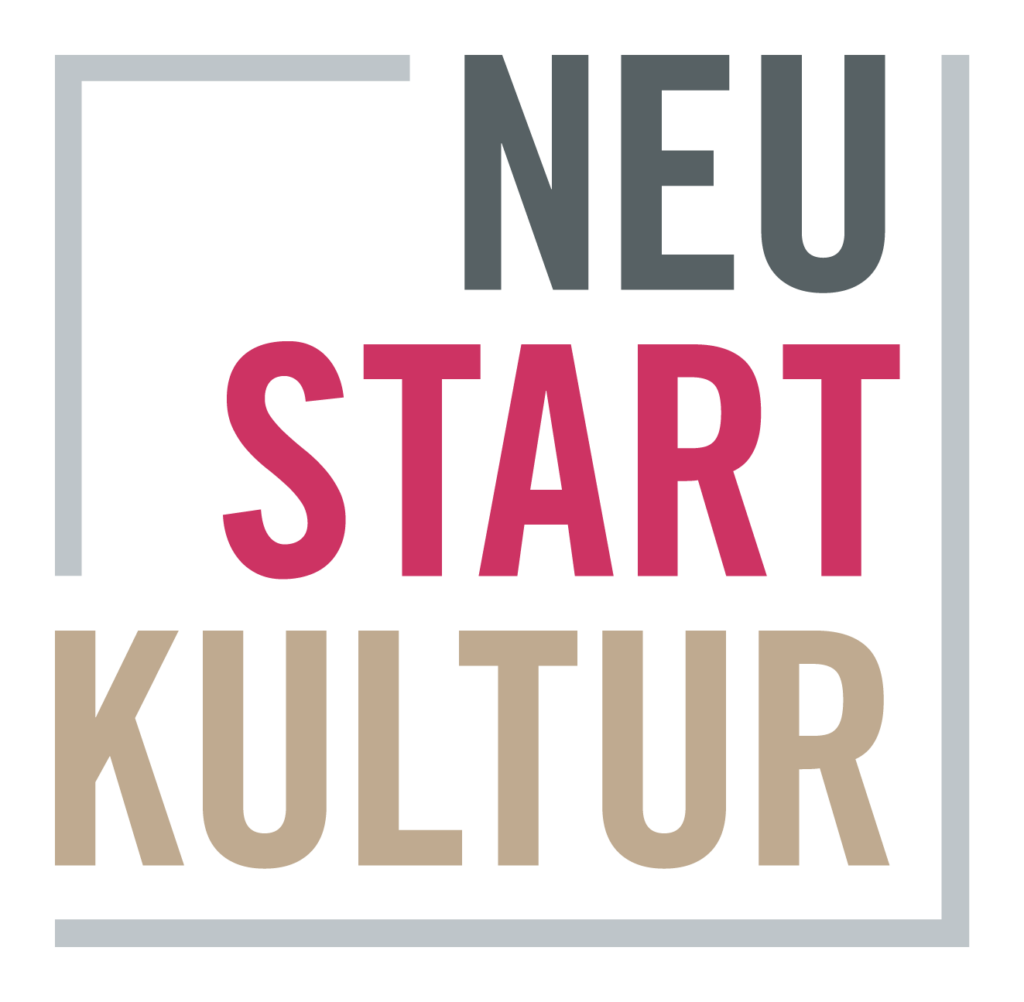
Cultural Heritage Digital - Content Community Oderbruch
Continuously arise at the Heritage sites in the Oderbruch region through exhibitions, events, theater performances, school projects or artistic contributions new interesting contentbut which are predominantly analog. How can produced content also be presented digitally, archived and made accessible to the public? How can we also present the Oderbruch cultural landscape digitally to our visitors? Where is there already digital content, where can new digital content be created and which things should be digitized as quickly as possible so that it is not lost to the younger generation?
In the project Cultural Heritage Digital - Content Community Oderbruch, a digital and participatory web application is developed together with the cultural heritage sites in the Oderbruch in order to present the cultural heritage of the region publicly through multimedia content and to create more participation opportunities for dealing with this heritage.
The project therefore started with a small user survey. Over the last four weeks, Alex Schirmer and Johanna Ickert contacted a representative of each of the 40 heritage sites to find out more about their needs on this topic. You can find a first insight into the results of the conversation in an article in our News Blog.
Where do we go from here?
In the coming weeks, we will use the findings from our user survey as an opportunity to work out ways in which 1. digital media can be used to improve Preservation and presentation of cultural heritage can be supported, 2. can also be younger generations be enthusiastic about cultural and historical content, and 3. use digital media for mutual Exchange of experience and cooperation can serve.
For this we offer the following offers in the next months:
PRESERVE AND PRESENT
1. image processing
09.06 17-20 h, Oderbruch Museum
Registration until 03.06.22 at the latest
How can you "get more out" of existing photos with digital image processing? What needs to be considered when creating scans? What tricks and "hacks" are there? In the workshop we will give you a compact overview of common free image editing programs such as Photopea or Gimp. Using concrete images that you would like to edit as a heritage site, we will teach basic image editing skills. In particular, we will focus on editing archival images and creating appealing imagery for your own public relations efforts. In addition, you will learn what to consider when scanning documents and images for the purpose of inventory/archiving.
Speaker: Stefan List (media designer)
Important note: Please bring photographic material to this meeting that you would like to use for publication.
2. copyrights and rights of use in the museum
10.06.22 17-20 h, Oderbruch Museum
Registration until 03.06.22 at the latest
In our course, we clarify key terms and questions about copyright and usage rights on the Internet: What is actually the difference between copyright and usage rights? What is a work and how do I find out if it is possibly protected by copyright? What is an orphan work? When does the VG-Bild come into play and what needs to be contractually regulated when taking over objects and estates? In addition, we will address the copyright reform that will be implemented in June 2021. The reform brings important changes to the legal framework for the digitization of cultural heritage, which will be discussed in the course. Key points here are: Protection of public domain, new rules for putting "unavailable works" online, and expanded collective licenses.
Speaker: Arne Lindemann (Digitalization Officer at the Museumsverband des Landes Brandenburg e.V.)
Important note: Please bring to the workshop - if available - one or more documents regarding which you have specific questions regarding copyright. We will try to answer these to answer open questions within the workshop or to work out strategies for their clarification with you.
3. digital storytelling
28.10.22 17-20 h, Oderbruch Museum
Registration until 21.10.22 at the latest
The cultural technique of storytelling is a method of public relations that should not be underestimated: it is able to present complicated phenomena in an understandable way and to make complex issues tangible. Participants of this workshop will be given the opportunity to become creative themselves as storytellers of their cultural heritage sites and to acquire multi-layered skills in the process. In this workshop, you will learn relevant basics to use digital storytelling for your heritage place. You will learn tools and tricks for developing narrative worlds, especially in a digital context. You will learn how to find suitable topics, tell exciting stories and find and optimally use suitable channels for your content.
Speaker: Dr. Johanna Ickert
Important Notice: Please bring to this meeting suggestions for a subject of your cultural heritage site with (for example a concrete Event, a student project, a historical theme, etc.), for that you would like to develop digital storytelling as part of the workshop.
4. publishing and inventorying with museum-digital
04.03.2023 10 a.m.-4 p.m, 10-16 h, Oderbruch Museum
Registration until 28.02.2023 at the latest
On the portal museum-digital more than 750 museums across Germany jointly show over half a million objects from their collections. The museum-digital platform is not only the digital showcase of museum collections, but can also be used to inventory object holdings. For museums or local heritage centers that do not yet have a program for digitally recording collections, museum-digital is an easy-to-use solution that is also free of charge.
The workshop introduces the inventory mask of the program and teaches the basics of inventory work with museum-digital.
In addition, we will take a close look at the object output of museum-digital. We trace the ways in which internet users reach the objects on museum-digital and explain how to optimize the object presentation accordingly with regard to its good findability and usability. Furthermore, we introduce the exhibition modules of museum-digital "Themator" and "md/Story" and talk about the possibilities to show the objects presented in museum-digital on one's own website or in analog mediation formats, such as one's own exhibition.
Speaker: Arne Lindemann (Digitalization Officer at the Museumsverband des Landes Brandenburg e.V.)
Important note: Please bring to the workshop - if available - your previous digital documents with inventory overviews (e.g. specially created Excel tables or Word documents). The workshop is designed so that each participating cultural heritage site can work on its own inventory and, if necessary, publication right away.
YOUNG GENERATION
1. bring young and old together
August 2 - 5, 2022, Oderbruch Museum
Registration until 26.07.22
Digital media are particularly popular with the younger generation. The need to pass on regional knowledge to the younger generation, which was frequently mentioned in the discussions, will be taken into account in a separate series of workshops. We already presented the offer in the last newsletter on March 23. Enclosed you will find a registration form. Further information here
2. youth films heritage places
Summer and autumn 2022 in Podelzig and Seelow
In our film series Jugend filmt - Kulturerbe-Orte, two new documentaries will be shot again this year. Young people will deal with the church ruins of Podelzig in the summer and with the Simon complex at the Schweizerhaus in Seelow in the fall.
EXCHANGE OF EXPERIENCE AND COOPERATION
At September 17, 2022 takes place the annual Coffee talk for home culture will take place. On this day, we would like to introduce you to a new digital presentation option, on the basis of which the cultural heritage sites are brought back into focus through interesting content. On this day, you will learn how this can be achieved. On this day, we will also go into more detail about the results from the user survey.
A project within the framework of CULTURE.COMMUNITIES:
A joint funding program for digital content production in cultural institutions by the Federal Government Commissioner for Culture and the Media and the Cultural Foundation of the Federal States.
Funded by the Ministry of Science, Research and Culture of the State of Brandenburg.



